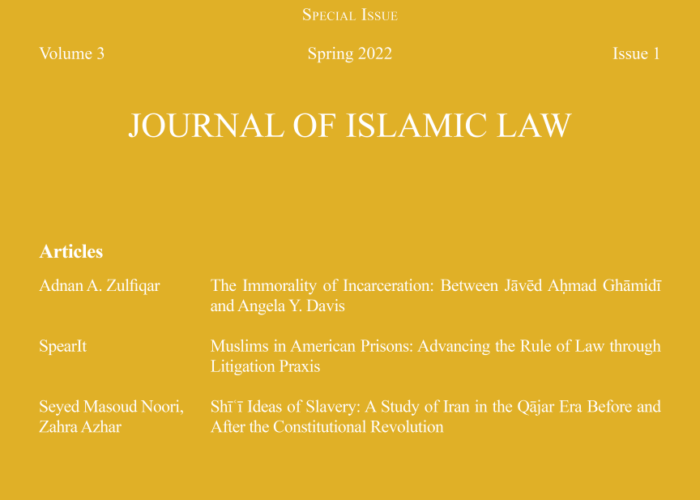Journal of Islamic Law Volume 3: Special Issue
Posted on June 29, 2022
We are pleased to announce the publication of the third volume of the open-access, peer-reviewed Journal of Islamic Law, a special issue on racial justice and equality.
We invite you to digitally explore the third issue which started with one question: how do Islamic legal traditions, whether in theory or in practice, inform contemporary debates on racial justice and equality, particularly with the notable rise of mass incarceration? Exploring this question appeared to us critical in several respects. First, race continues to be a major fault line in today’s world—W. E. B. Dubois’s color line persists. Race also continues to affect the way Black people and other people of color—including many Muslims—are treated on a day-to-day basis. Second, the Black Lives Matter moment brought realist approaches to law out of law reviews and into the mainstream conversation through its focus on structural inequalities, mass incarceration, and the policing of communities of color and immigrants in the United States. No matter what law said it did, one had to look at what it actually did to affect (different segments of) society. Third, Muslims, be it in the United States or in the Global South, were not simply subjects or victims of the law or of its systems. We recognized that they are actors shaping the course of the developments in law and society that touch on racial equality, criminal justice, and equality; and they sometimes draw on Islamic traditions in doing so. We sought to examine how.
This special issue includes an introduction by this Special Issue’s Editor and current PIL Research Fellow, Hedayat Heikal (Harvard Law School), and essays by Adnan A. Zulfiqar (Rutgers Law School), SpearIt (University of Pittsburgh School of Law), Seyed Masoud Noori (NYU School of Law), and Zahra Azhar (Shahid Beheshti University), that examine some of these Islamic legal “traditions of action” and how they bear on questions of racial justice and equality today. Read these essays today!

